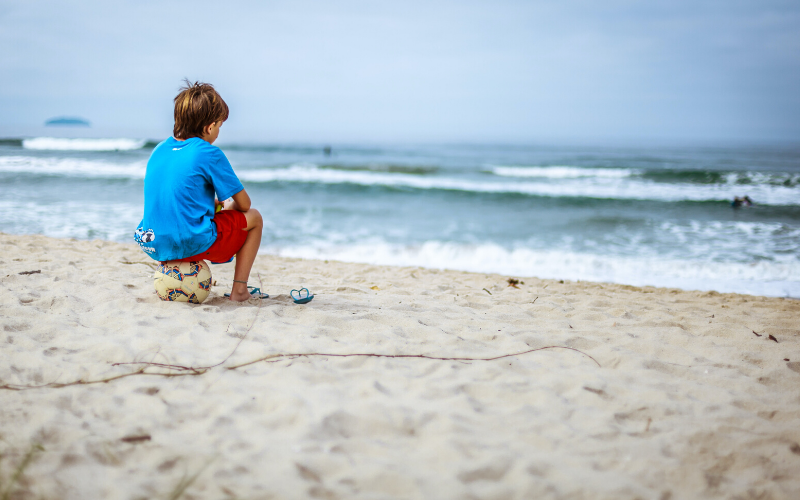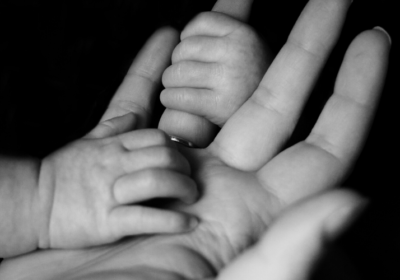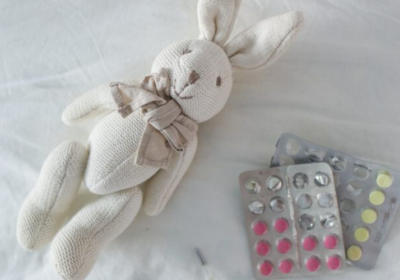“You know, Mommy,” my son said to me, “Abuelita* and I have so much in common. I think that is why I love to spend time with her so much.” He said this with so much sincerity that I found myself puckering my lips to avoid smiling at his statement. I was trying to think what on earth he was referring to. My son is a tall eleven-year old, active, extroverted child who gives a verbal, running commentary about everything going on in his mind and around him. He talks constantly. He towers over his abuelita in size. Abuelita is tiny, walks with a cane, is very introverted, and only talks when she has something important to say.
Over the holidays we visited Abuelita, and it was not uncommon to find Jony with his abuelita. We planned all sorts of entertaining outings, and even during those, we would find him sitting in the shade with her. One day we went to an archeological site. As we were driving in, we had already picked out the shady spot where Abuelita would sit while the kids explored. Abuelita avoids the sun like the plague. She brought a very large sunhat and an umbrella to shield herself from the sun, both of which she used even though she was sitting in the shade. If she is walking to the market and sees an awning across a busy street that will provide her six feet of covering from the sun, she will risk her life to cross that street with her cane for ten seconds of shade.
I had all these ideas about what this trip would look like. I traveled all over the world with my family growing up. We didn’t have much money, and though these trips always had a work-oriented destination, my parents took advantage of each one. My dad was quite the adventurer, and if we were at all close to some significant landmark, he would figure out a way for us to see it. “Close” is such a relative term for very significant landmarks like Paris, France, which could be ten hours away, and for other less significant landmarks like Mount Rushmore, which could be just a few hours away. My mom would read aloud to us about the history and landmarks of our destination. This all took effort, as it was before the time that the internet was at our finger tips. It was important to them – learning about the history, appreciating the culture, and taking advantage of every opportunity we had. This is the framework I developed for travel.
Fast forward through the years, and travel looks very different for me now as an adult with children of my own. My husband and I had hopes of traveling with our children. For years, travel was so difficult that unless we were going to a family wedding or funeral, we avoided it all together. We said “no” so often, refusing invitations, that it is amazing we had any friends left. We learned that routine was our best friend, and there is never enough routine in travel. Every day brings something new and exciting; for easily overwhelmed children, this means every day feels riddled with anxiety and is unsafe. Meltdowns were epic when we traveled.
We have come such a long way. Trips are no longer dreaded in our home. This doesn’t mean they are easy and stress-free, but the good parts outweigh the hard parts. We come home tired, but happy that we went. Before, I can remember saying to my husband, “Remind me that this was not worth it whenever I get another travel idea in my head.”
Over the holidays we went to see my husband’s family in Mexico. His childhood home is very close to several archeological sites, as well as other historical sites. I had this idea – I blame my Dad for this one – about all the opportunities the kids would miss if we didn’t make it to everything that was “close” to Abuelita’s house. I had one child who relished each location, asked lots of questions, and begged to stay longer. Jony was not that child. He complained about the sun while we stood at the base of one of the largest pyramids in the world. He complained each time we got in a car to go anywhere. The car always felt too crowded and too hot, and the speed bumps agitated him. He just wanted to stay at the house with Abuelita . He really didn’t care about the pyramids, natural hot springs, or the history of the city. He gagged impolitely every time someone added spicy grasshoppers to his/her food, no matter how many times I gently reminded him that was impolite. Every time he gagged, I served myself more grasshoppers, hoping to ease my own discomfort.
So much of what I wanted him to care about, he just didn’t. However, the things I value most in life he cares about deeply, and those are relationships. I had to choose to pay attention to all the ways he showed “care”, and there is not a single person in the family that does that better than he does. Every time I went looking for Jony, I found him with his abuelita. He was the first to help her in and out of the car. He worried if she hadn’t gotten out of bed and would climb onto the bed next to her asking, “Te sientes bien, Abuelita?*” When he found her flipping through a math workbook one morning, he rushed to bring her a stack of more interesting books. He was sure that she wasn’t actually interested in the math workbook. Jony went to the market with her in the mornings. He cheerfully carried her purse as she held onto his arm on the uneven sidewalk. The only moments of tension between the two of them happened at 4:00 p.m. every day when her favorite soap opera started at the same time as his favorite cartoon started. Even then, after a little pouting and complaining, he would settle in beside her comfortably, sitting as close as you can to someone without ending up in his/her lap. What struck me is how present he was with her. I cannot imagine any other boy his age being that comfortable in the same situation. Most children become very somber when they are taken to visit a sick family member at the hospital or their grandparent in an assisted living center. Grandma asks for a hug, and children hunker down next to their moms, feeling the weight of the sorrow that fills the air in those places.
The simple, sweet way that Jony loves is his gift. He might not care about seeing an ancient city, but he is the first to comfort or offer companionship to someone who is lonely. That is the stuff of life. A person can be successful if he can have successful relationships. This is a child who will succeed. His ability to just “be with” exceeds my expectations of a child his age. It is a gift. My choice is this – what do I pay attention to? I can choose to pay attention to the fact that other kids his age would appreciate the experiences he didn’t. Or I can choose to pay attention to the fact that my son cares about his family so much that being with his family exceeds any experience that I could provide for him. I can choose to pay attention to the fact that my son is a nurturing caretaker, and one day I know he will show his dad and I the same care as we age. I can’t explain to you why Jony thinks he has so much in common with his abuelita because he couldn’t find the words to express that to me. I suspect it has to do with him feeling connected, needed, and a sense of belonging.
*Abuelita literally means “little grandma”. It is a term of endearment for a grandparent in Spanish.
*Te sientes bien ?- means “Do you feel O.K.?”



